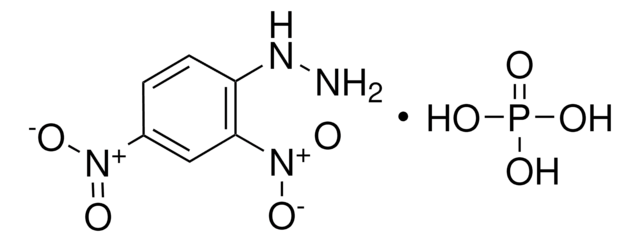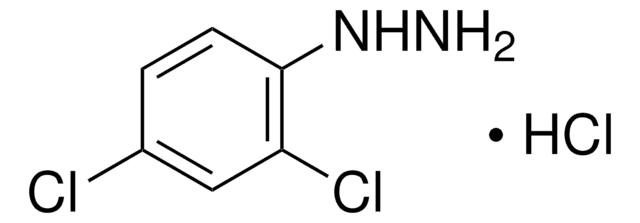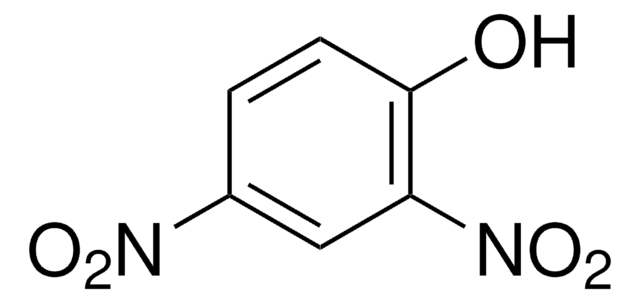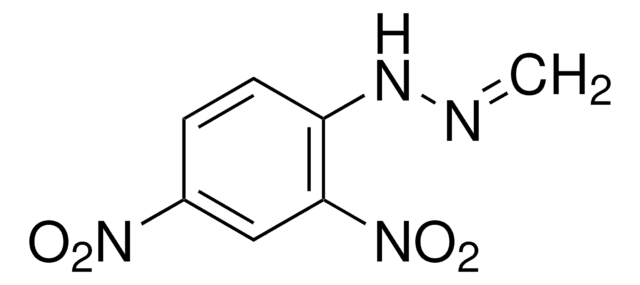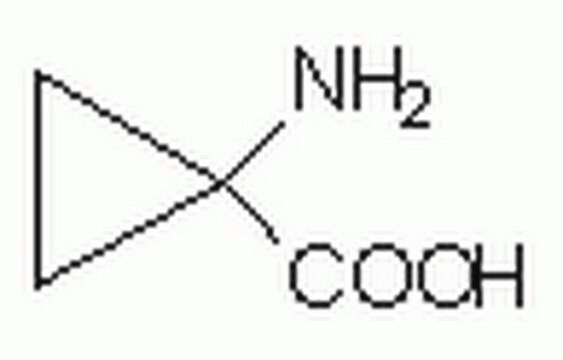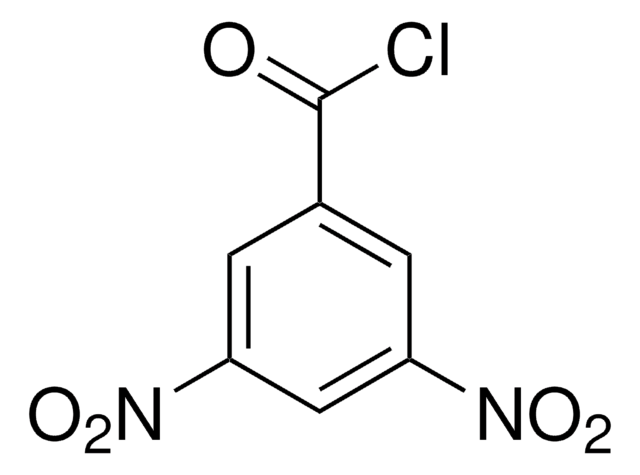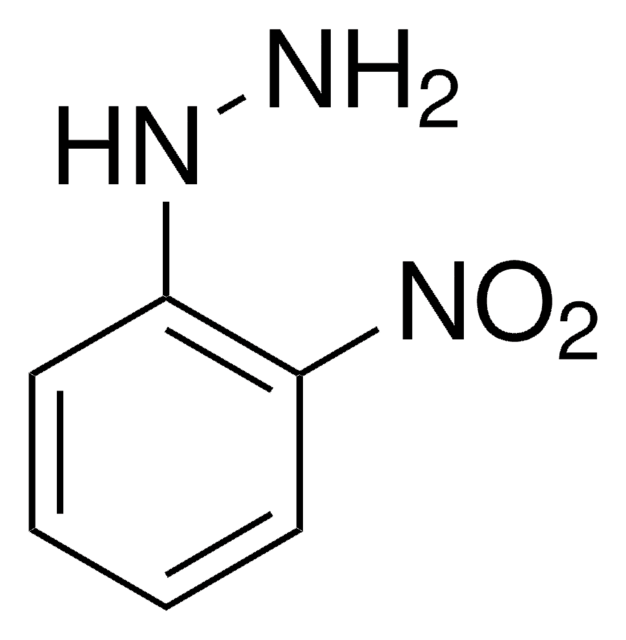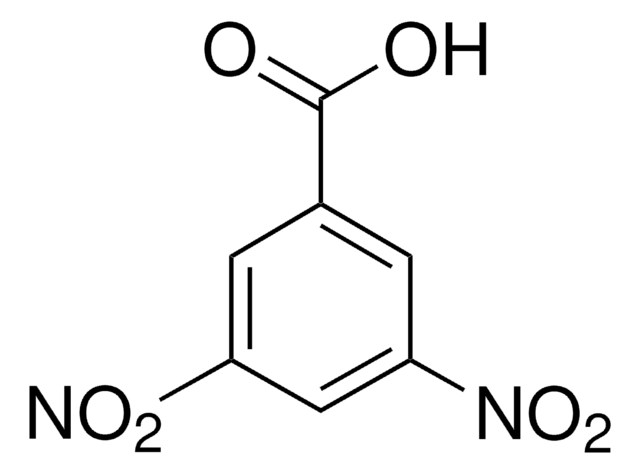04732
2,4-Dinitrophenylhydrazine
for HPLC derivatization, LiChropur™, moistened with 35% water, ≥99.0% (HPLC)
About This Item
Recommended Products
grade
for HPLC derivatization
Quality Level
Assay
≥99.0% (HPLC)
quality
LiChropur™
moistened with 35% water
technique(s)
HPLC: suitable
mp
197-200 °C (lit.)
SMILES string
NNc1ccc(cc1[N+]([O-])=O)[N+]([O-])=O
InChI
1S/C6H6N4O4/c7-8-5-2-1-4(9(11)12)3-6(5)10(13)14/h1-3,8H,7H2
InChI key
HORQAOAYAYGIBM-UHFFFAOYSA-N
Looking for similar products? Visit Product Comparison Guide
Application
Legal Information
Signal Word
Danger
Hazard Statements
Precautionary Statements
Hazard Classifications
Acute Tox. 4 Oral - Desen. Expl. 1
Supplementary Hazards
Storage Class Code
4.1A - Other explosive hazardous materials
WGK
WGK 3
Flash Point(F)
Not applicable
Flash Point(C)
Not applicable
Choose from one of the most recent versions:
Certificates of Analysis (COA)
Sorry, we don't have COAs for this product available online at this time.
If you need assistance, please contact Customer Support.
Already Own This Product?
Find documentation for the products that you have recently purchased in the Document Library.
Our team of scientists has experience in all areas of research including Life Science, Material Science, Chemical Synthesis, Chromatography, Analytical and many others.
Contact Technical Service